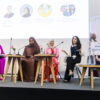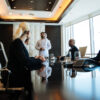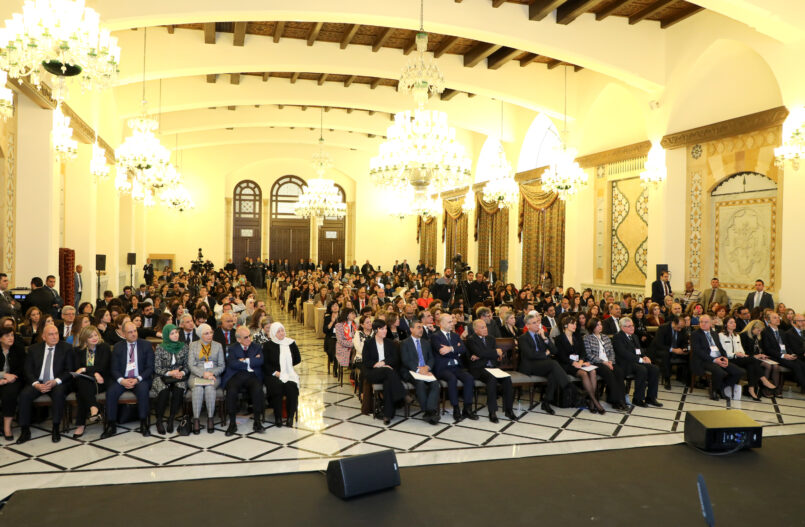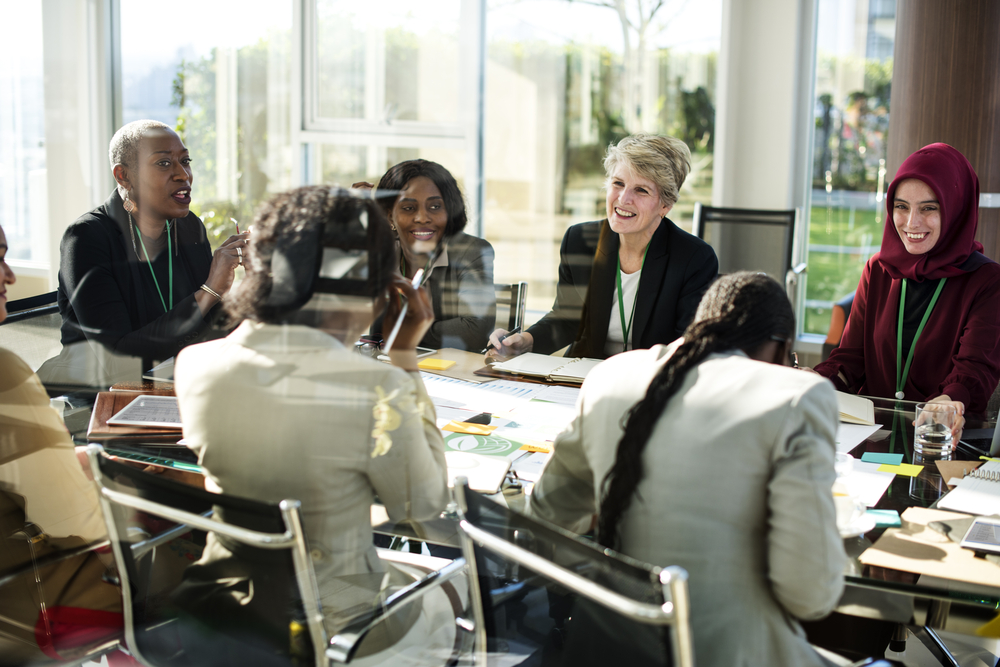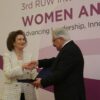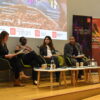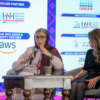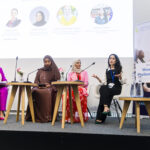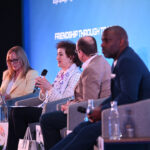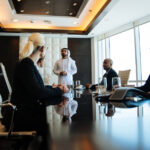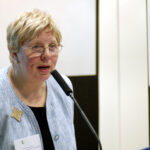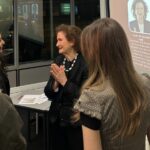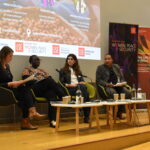AIWF Chairman Haifa Al Kaylani and AIWF Board Member Hanan Saab had the honour and pleasure of attending the World Bank Mashreq Women’s Economic Empowerment Summit on 19 January 2019 at the Grand Serail and at the margins of the Arab Economic and Social Development Summit.
The conference was held under the Patronage and with the presence of HE Saad Hariri with high level representation from the Governments of Jordan and Iraq, as well as heads of international organizations, ministers and members of parliament. Around 350 participants from governments, civil society, private sector and development partners were present at the event. For this important initiative, the World Bank, International Finance Corporation (IFC) and the Government of Canada had come together to support the efforts of Mashreq governments towards enhancing women’s economic empowerment as a catalyst towards more inclusive, sustainable and peaceful societies, where economic growth benefits all.
In the MENA region, women only generate 18% of GDP, according to the World Bank, compared to a world average of 37%, and increasing female labour force participation to the levels of men could boost regional GDP by 47%. Today, the majority of women in MENA are facing high inactivity and high unemployment rates. Only 19% of working age women participate in the labour force in MENA, compared to 46% in middle-income countries. In Mashreq countries, Jordan has one of the lowest female labour participation rates in the world with 14% compared to 19% in Iraq and 23% in Lebanon.
With this in mind, the high-level conference examined strategies for empowering women and girls which is instrumental to achieving more inclusive institutions, sound policies, and effective development outcomes. In the Mashreq countries, important gains have been made in women’s access to education and health, but persistent challenges remain in the areas of women’s economic opportunities, voice and agency. Accordingly, the conference aimed to elevate the dialogue and overall awareness of the importance and benefits of enhanced economic participation of women in the Mashreq region, and create a space for the Governments of Lebanon, Jordan and Iraq, in collaboration with the private sector, civil society and development partners, to share their commitments to this agenda. During the conference, the Mashreq Gender Financing Facility was officially launched, aimed at supporting client countries in achieving their commitments towards enhancing women’s economic empowerment.
Official Opening Keynotes were delivered by Ferid Belhaj, Vice President MENA Region, World Bank; Stephanie von Friedeburg, Chief Operating Officer, IFC; HE Emmanuelle Lamoureux, Ambassador of Canada in Lebanon; HE Mahdi Al Alak, Secretary General, Council of Ministers, Iraq; HE Mary Kawar, Minister of Planning and International Cooperation, Jordan; HE Ahmad Abu Al Ghaith, Secretary General, League of Arab States; and HE Saad Hariri, President of the Council of Ministers, Lebanon.
Sessions examined the creation of a more enabling policy environment for women’s participation in the Mashreq; the private sector as a catalyst for women’s economic empowerment; and leveraging social change to enable women’s economic opportunities. The Closing Session on Gender Commitments and Action Plans by the governments of Jordan, Lebanon and Iraq was moderated by Dr Fadia Kiwan, Director General, Arab Women Organization, who was a keynote speaker at AIWF’s recent conference on Women, Water & Youth in Amman, Jordan. The concluding remarks, ‘The Beirut Communique on Mashreq Women’s Economic Empowerment’, were delivered by Saroj Kumar Jha, Regional Director Middle East, World Bank, in whose honour AIWF held a Special Reception in Beirut in July 2018.
The Chairman was delighted to attend at the kind invitation of the World Bank and to contribute her insights into the benefits of enhanced economic participation of women in the Mashreq region and the importance of bringing stakeholders together – the private sector, civil society and international development partners – to share their commitments to this vital objective. The generous and ongoing partnership of the World Bank on AIWF initiatives to empower women and young people in the MENA region and internationally has always been deeply appreciated and AIWF looks forward to continuing to work closely with the World Bank’s outstanding teams in Lebanon and across the MENA in support of the World Bank’s mission and strategy in the region.

